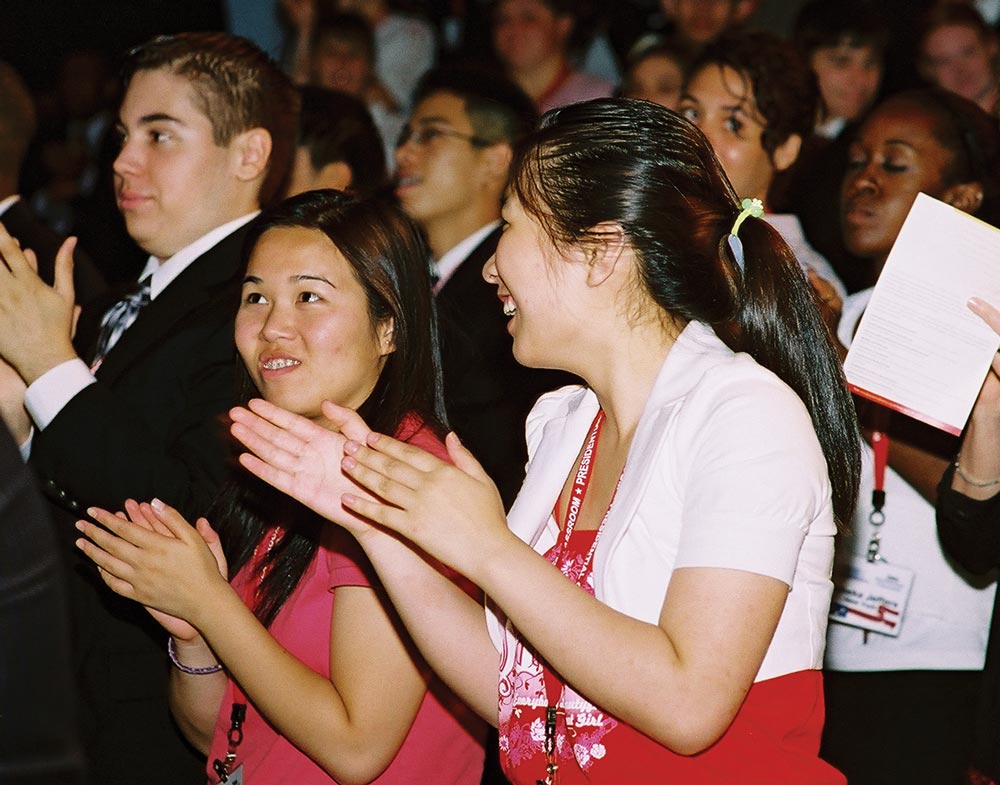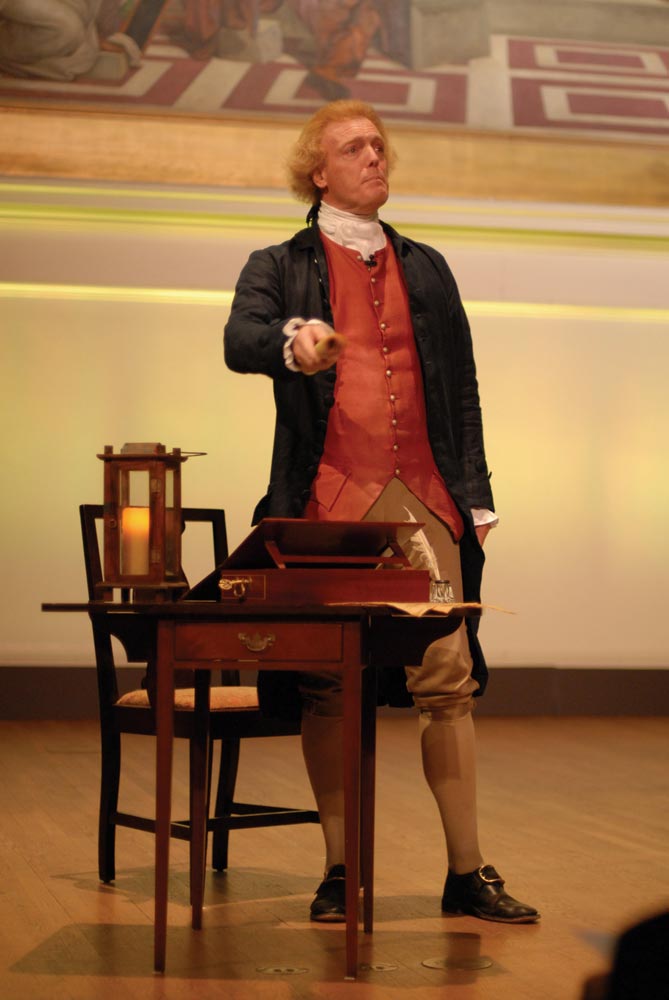Lessons in Democracy
Summit draws teens from around the world

The opening ceremony of the International Youth Democracy Summit—among the first events celebrating the 400th anniversary of the settling of Jamestown—had been rousing. Nearly 300 top students from 42 states and 24 countries packed Cabell Hall’s auditorium on a steamy August evening, where they were welcomed by numerous speakers, including a Thomas Jefferson re-enactor, entertained by live music and video clips featuring their fellow delegates, and even did “the wave.”

When Jefferson—actually Williamsburg’s Bill Barker—retook the stage and solicited questions from the audience, though, it quickly became apparent that the teen delegates were there for more than a show. Jumping into one of the thorniest American political debates, one opportunistic delegate asked Jefferson to explain his aim in penning the phrase “wall of separation between church and state.” (His answer: The intent was to protect the church from government intrusion, not necessarily to inoculate the state from religion.)
The ceremony incorporated music—including a percussion piece that blended the rhythms of African, Native American and European drummers—to set a multicultural theme for the four-day summit, which included speakers, discussion sessions and a daylong excursion to Jamestown and Williamsburg.
Cultural blending proved to be fertile ground for discussion, says conference organizer Ken Stroupe of UVA’s Center for Politics, the chief sponsor. “It fostered some of the most enlightening discussions I have ever attended at the University,” he said, as students struggled to reconcile democratic ideals with what they see and experience in the real world.
In the weeks after the conference, the Center for Politics received numerous letters from the student delegates expressing gratitude for their experience, including one from an inspired Chinese woman who arrived in Charlottesville completely unfamiliar with the American notion of democracy. The summit was “life changing,” she wrote.
“Maybe we planted a seed somewhere that will have some effect,” says Stroupe.